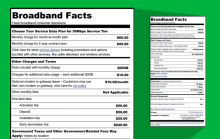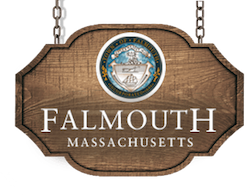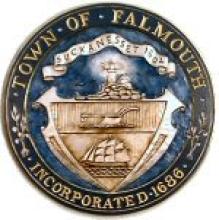Following Through on Transparency: A Broadband Nutrition Label Status Report
Nearly one year ago on November 15, 2021, Congress passed the Infrastructure Investment and Jobs Act (IIJA), which contained significant legislation around broadband. One piece, which the Institute for Local Self-Reliance (ILSR) has studied closely over the past year and a half, is the implementation of a broadband nutrition label which would require the transparent disclosure of broadband pricing and service information.
While this issue gets very little news coverage, it is an important undertaking as the big providers have a long-established habit of hiding pricing and speed information from subscribers, which prevents them from making informed choices and can leave them vulnerable to exploitation. Our advocacy for the label, and the original research behind our position, can be found here. The FCC is now under deadline to release an order to “promulgate regulations to require the display of” the label by November 15 of this year. We’ve taken a moment here to re-access the issue, offer a few updates, and highlight the ingredients of a strong broadband nutrition label.
Pushing for Clarity, Easy Accessibility, and Enforcement
ILSR, along with 30 other digital equity organizations, recently filed a letter to the FCC supporting the creation of the broadband consumer label and advocating that it be published in a way that makes it clear and easily accessible for customers. While ILSR believes the label is a key decision-making tool and should be published at the point of sale, we reject proposals to limit the label’s display to the point-of-sale only. We emphasize in this letter that the label should also be published on the monthly bill to provide an additional provider accountability mechanism that allows customers to understand what they're paying for.




 The community is looking for a firm that will:
The community is looking for a firm that will:
